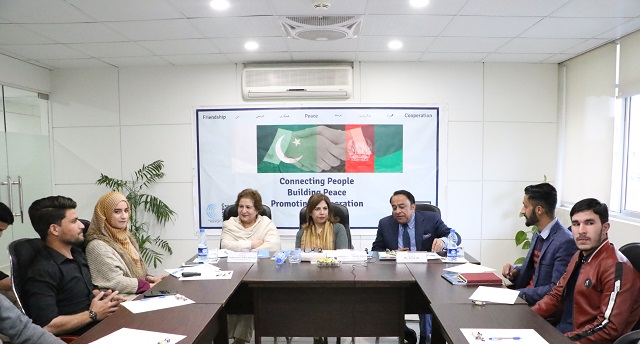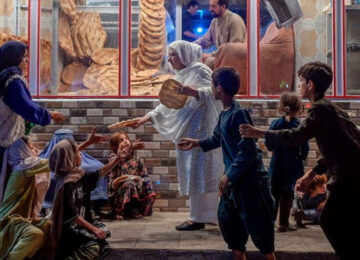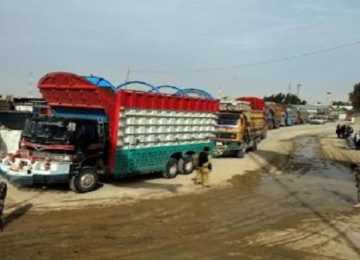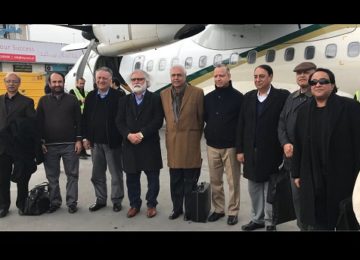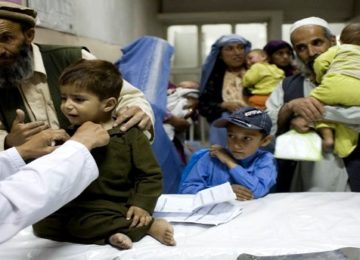February 20, 2020
It is encouraging that the peace deal between United States and Taliban is now imminent and that the intra-Afghan dialogue will commence soon afterwards. However, the reconciliation process within Afghans should be steered by the Afghans themselves and must not be guided by the outsiders for sustainability reasons, stated former Special Secretary of the Ministry of Foreign Affairs, Ambassador Tasnim Aslam, while speaking at the 27th Pak-Afghan Youth dialogue on “Pak-Afghan Relations, APAPPS and Peace Process” held at Afghan Studies Center on February 19, 2020.
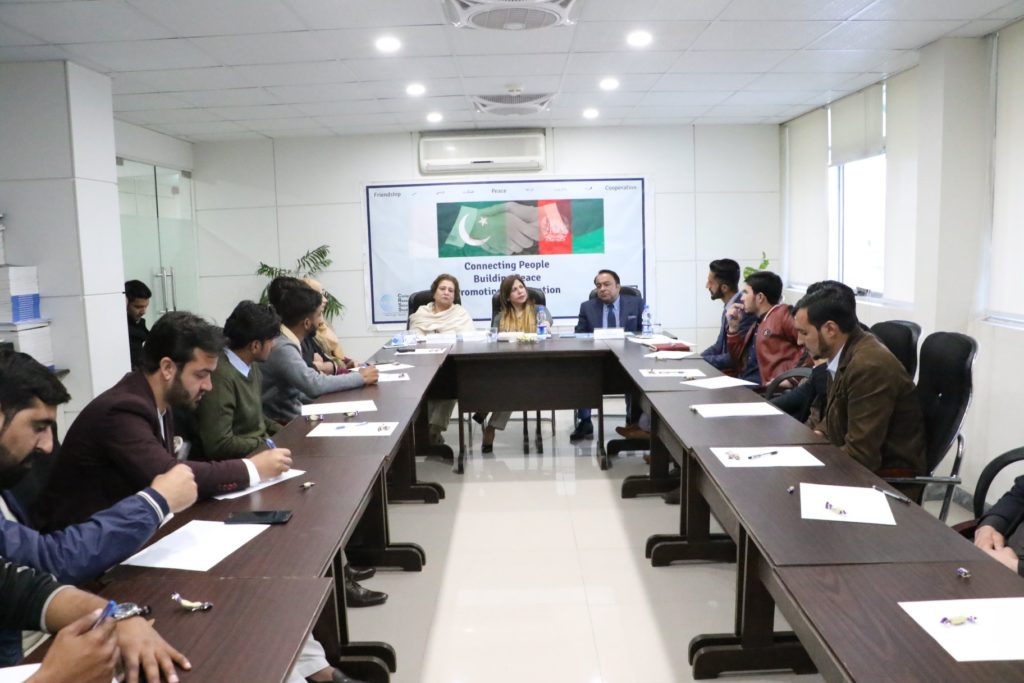
She was invited as the Chief Guest and Keynote Speaker alongside Ambassador Riffat Masood to speak to youth from both countries. Participants at the dialogue comprised 35 youngsters (12 Afghans and 17 Pakistanis) belonging to Peshawar, Mansehra, Rawalpindi, Abbottabad, Landi Kotel, Islamabad, in Pakistan and Kabul and Kandahar in Afghanistan; mostly enrolled as students in universities in Pakistan.
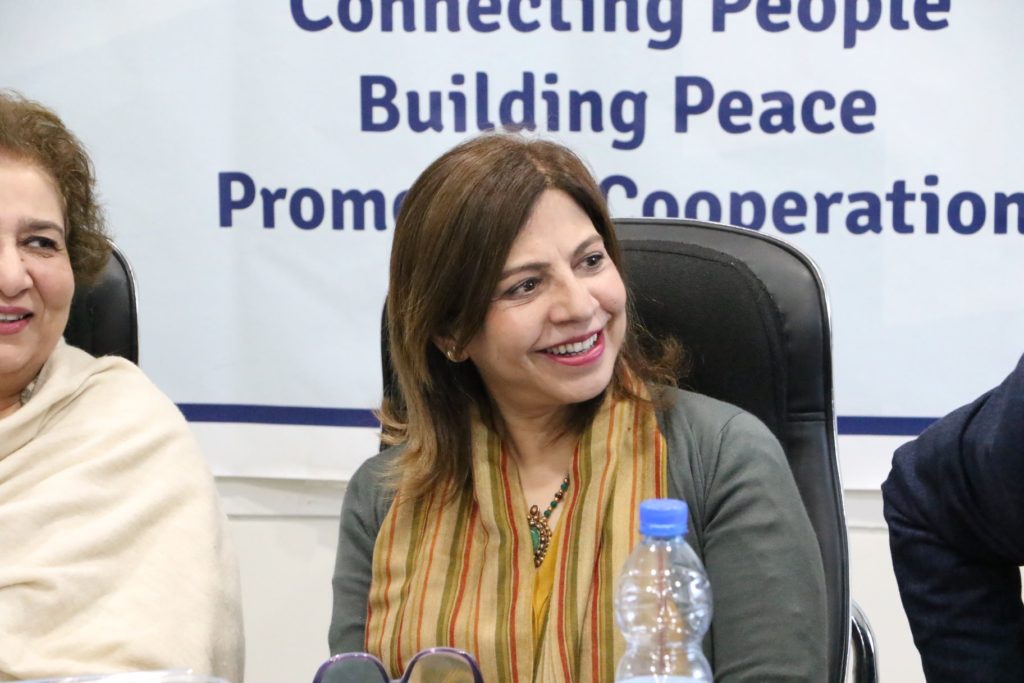
Addressing the youth from both countries, the Ambassador stated that Afghans would not find any other country where they feel more comfortable than in Pakistan. One cannot differentiate between Afghans and Pakistanis; both nations share the same culture, food, religion, languages and social structure. This implies that people to people relationship is still very much intact; though state to state relations have deteriorated, but this does not mean that both countries cannot reverse the decline in bilateral relations, she said. Supporting her argument, she stated that despite the political differences in 1960s, Afghan premier Daoud Khan sent a message to President Ayub Khan (during Pakistan-India war in 1965) that Islamabad need not worry about any threat on its western front from Kabul and focus on the war on its eastern front, waged by India. So, here is a lesson from history; we can live in harmony and as good neighbors, despite some hard differences, she added.
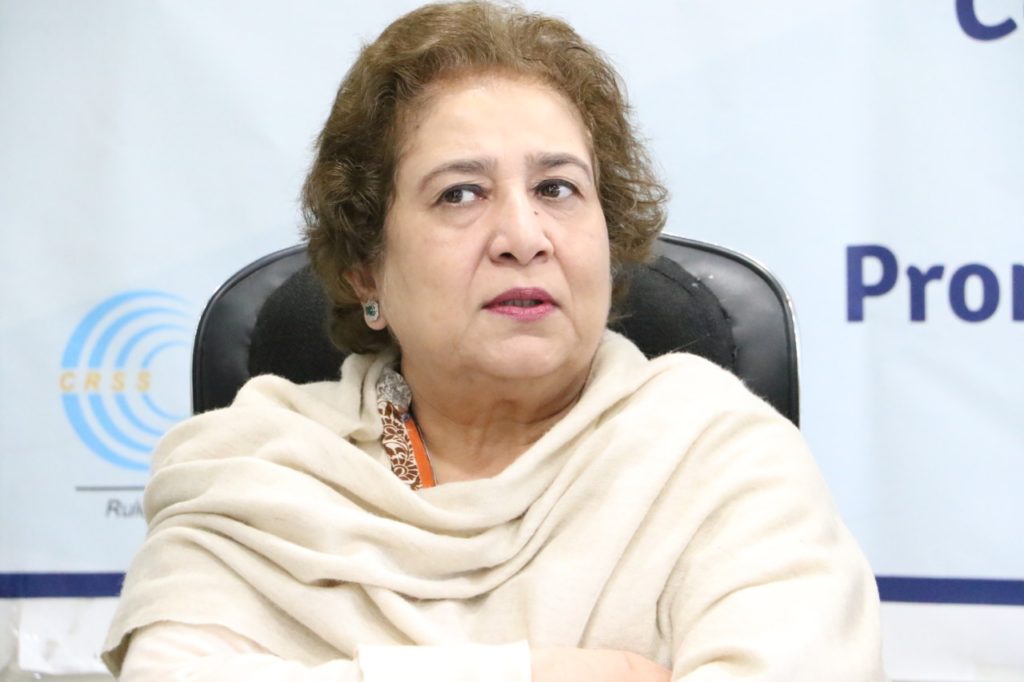
Ambassador Riffat Masood, who was also invited as a keynote speaker, seconded the viewpoint of Ambassador Tasnim Aslam and stated that Pakistan and Afghanistan should not be shy of having problems with each other. Neighbors, everywhere and at every level, have problems. Both countries need to look beyond their own immediate selves; both sides need to zoom out and look at things in the bigger picture. “We should analyze who is benefiting by the mistrust between Kabul and Islamabad? Has Pakistan benefited? Has Afghanistan benefited? If not, then why are we moving forward with the same mindset and ignoring the fact that some other actors are taking advantage of the situation”, she asked. The duo cannot be transported geographically to some other place. The foreign actors present is the region will also leave eventually. What would be left behind are Pakistan and Afghanistan; both to remain as neighbors. So, its better to start cooperating with each other and take one step at a time. Things between the two sides would not change overnight, we need to be patient and make way by confidence building measures, stated the Ambassador. The future of Pakistan and Afghanistan belongs to the youth; it is important that the youth overcome the mistrust and forge a true alliance as friendly neighboring countries, added Ambassador Tasnim Aslam.
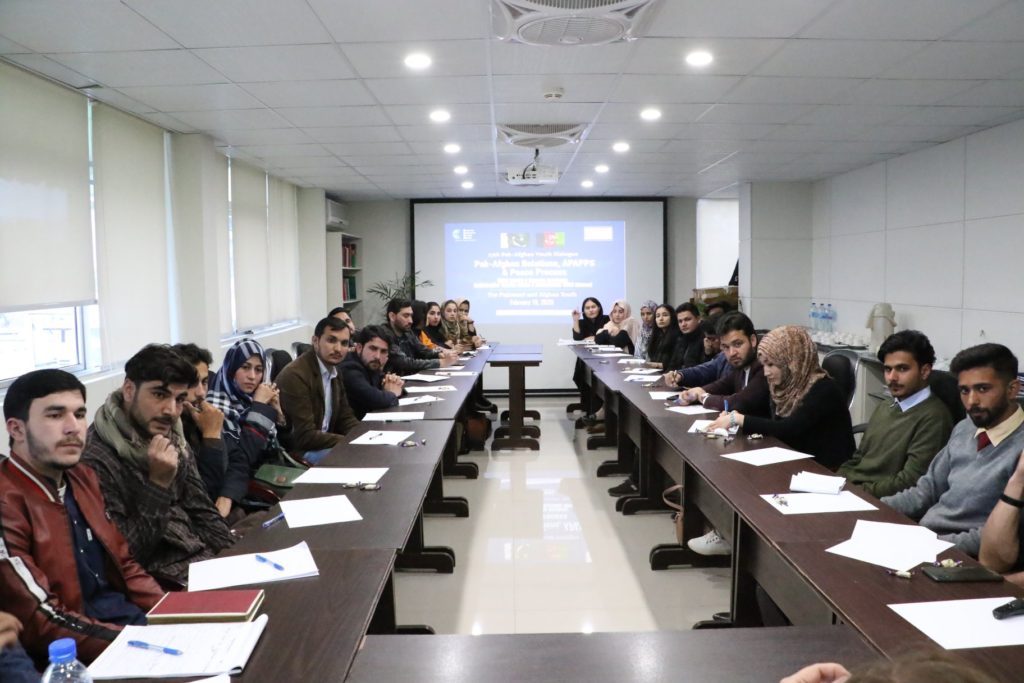
In the interactive discussion session, youth from both sides emphasized on having more youth exchanges between the two countries, spreading positivity, promoting people to people contact and easing the visa regime. They also stated that the isolated incidents on both sides of the border which fuel hatred should not be generalized to the entire nation on either side. Most of the Afghan youth called Pakistan their first home as they were born here and had never been to Afghanistan.
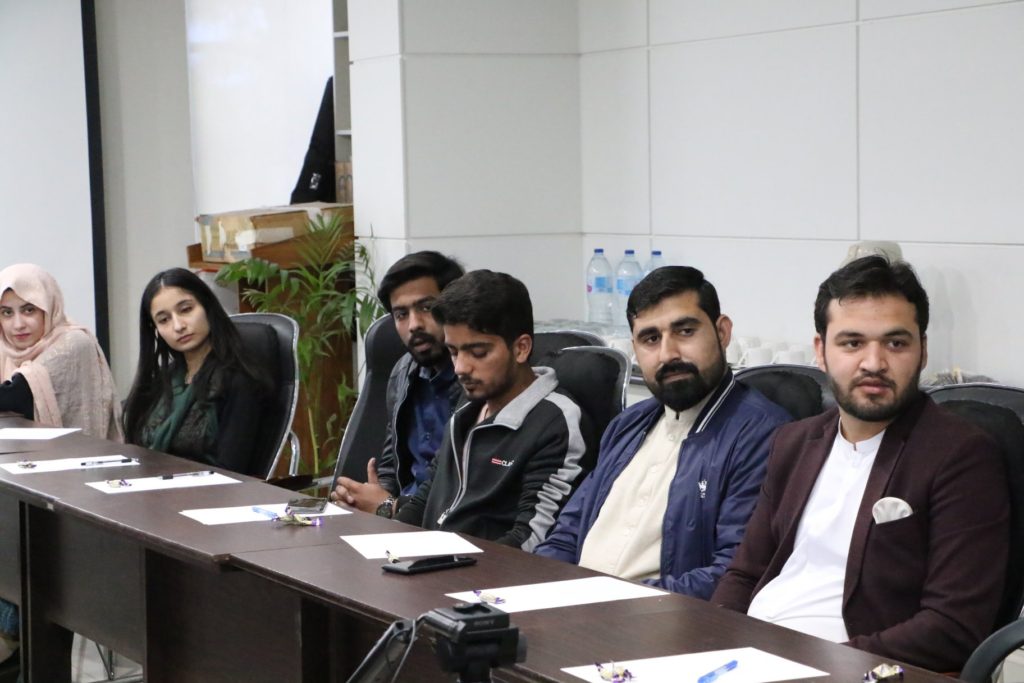
The participants brought up their views regarding foreign occupation in Afghanistan, India’s role, the issue of Durand Line, and most importantly, putting an end to the blame game between the two countries.
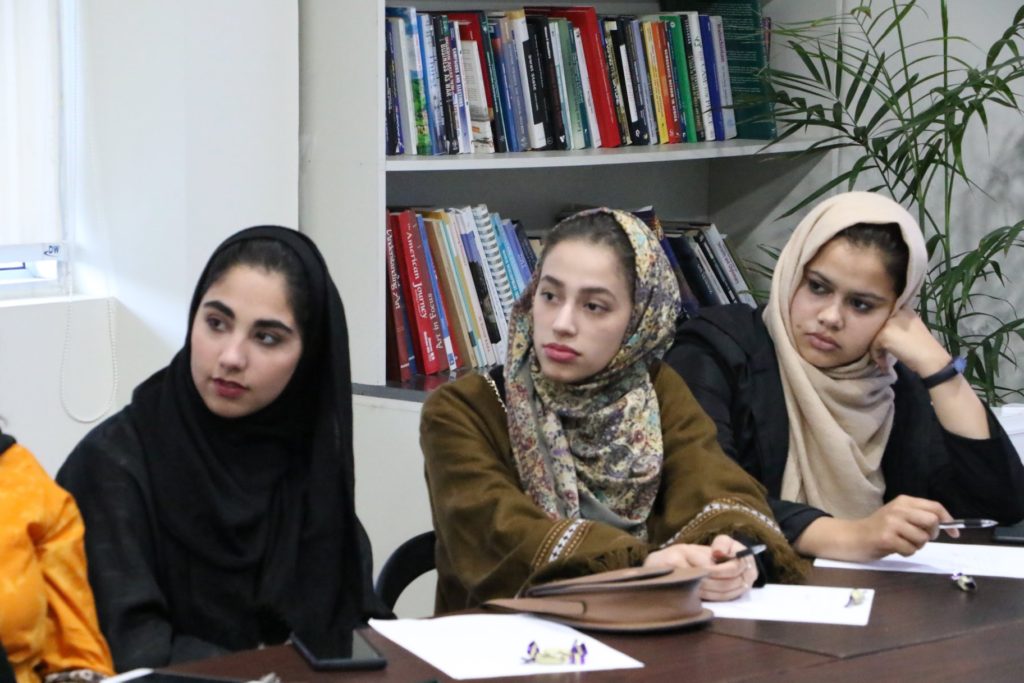
Regarding foreign troops’ occupation, Ambassador Tasnim said it only causes new issues to rise like suicide bombings and terrorism. It is time the Afghans get together and let anyone hijack the peace process, she said. Regarding India’s role, she said the Indian presence in Afghanistan is only a problem if India is training a terrorist organization as it should not use the Afghan territory for terrorism.
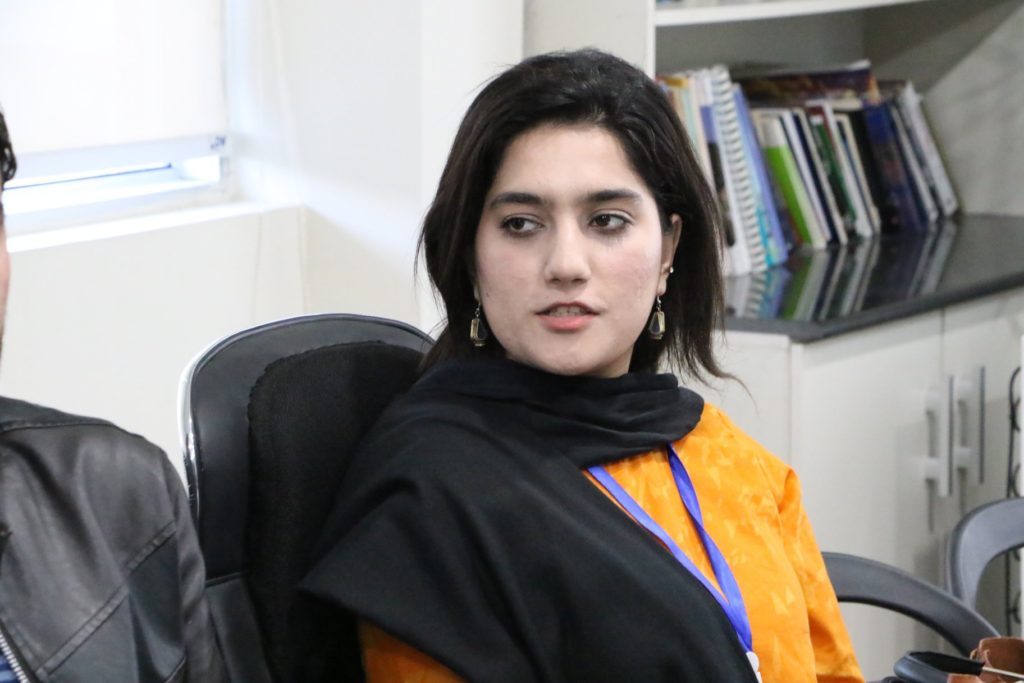
Regarding the blame game, some participants stated that “we should not say you or me but we should be a collective ‘WE’”, adding that earlier the movement between Pakistan and Afghanistan was always free. Further, some stated that with foreign presence comes the concept of “divide and rule”. Hence, we should move beyond the negativity that we have allowed to build up and move forward with a positive approach towards each other. Media and spoilers also create a negative portrayal, some pointed out. Hence, it is up to the youth to remain mindful of how they want to shape their future in both countries with such factors around.
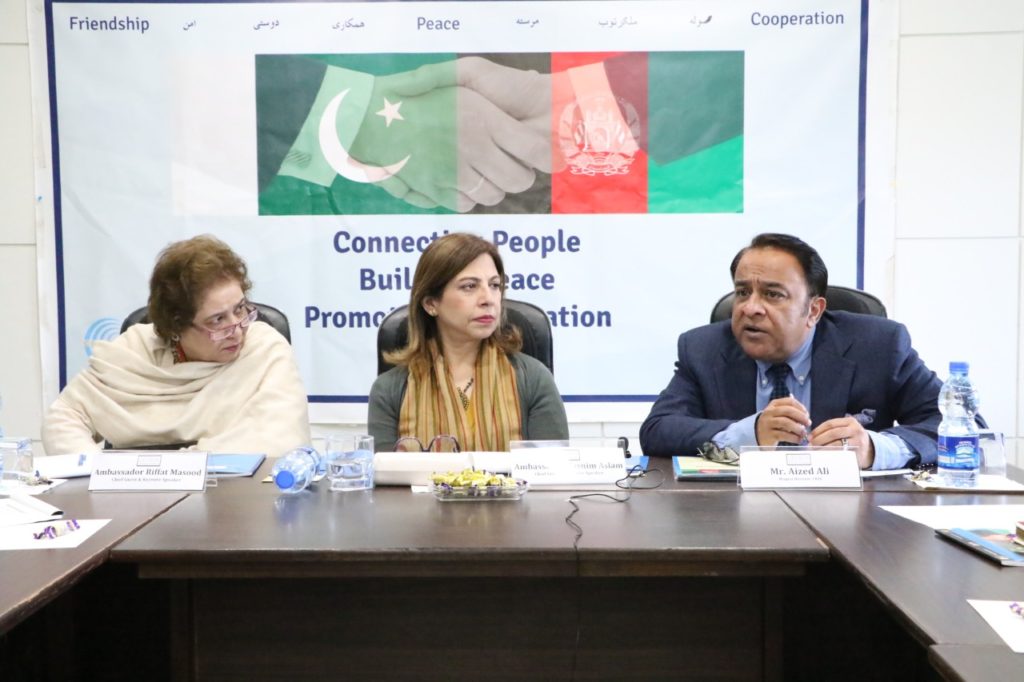
CRSS Project Director Mr. Aized Ali apprised the participants about the ongoing CRSS Pak-Afghan Track 1.5/II Initiative ‘Beyond Boundaries’ which has so far convened 17 high level meetings between the two Pak-Afghan influencers’ groups, to bridge the gulf of mistrust and improve bilateral relations between Pakistan and Afghanistan. He told the participants that the Afghan Studies Center emerged from this initiative, aiming to provide the youth of both countries a platform to inculcate critical, creative and out of box thinking, and to dispassionately interact and exchange ideas as they emerge as future leaders and ambassadors of peace.
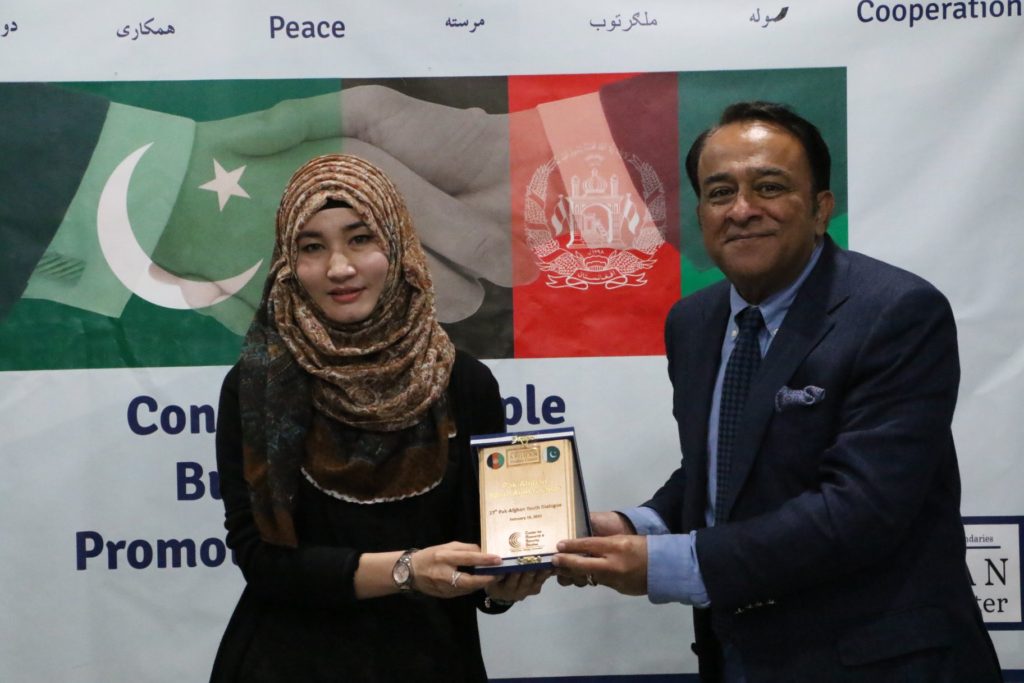
At the end, the ASC team nominated Ms. Khadija Ahmedi from Afghanistan as the 27th youth ambassador of peace at Afghan Studies Center. She was presented a shield by Mr. Aized Ali.
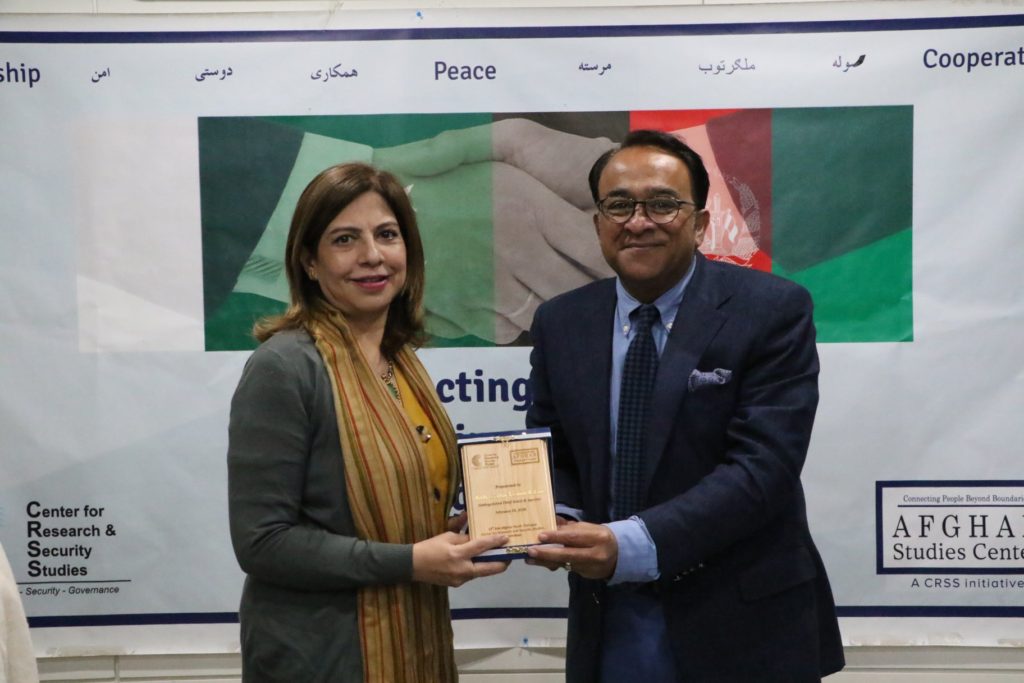
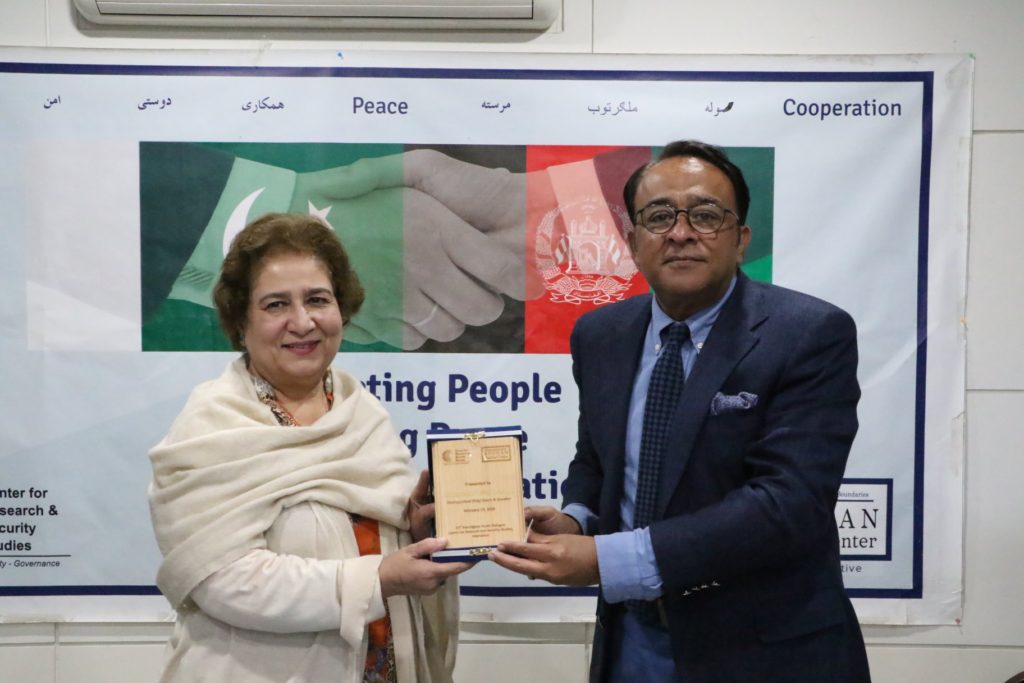
Mr. Aized Ali then also presented honorary shields of appreciation to Ambassador Tasnim Aslam and Ambassador Riffat Masood. Thereby, the 27th Pak-Afghan Youth Dialogue came to an end with a group photo.
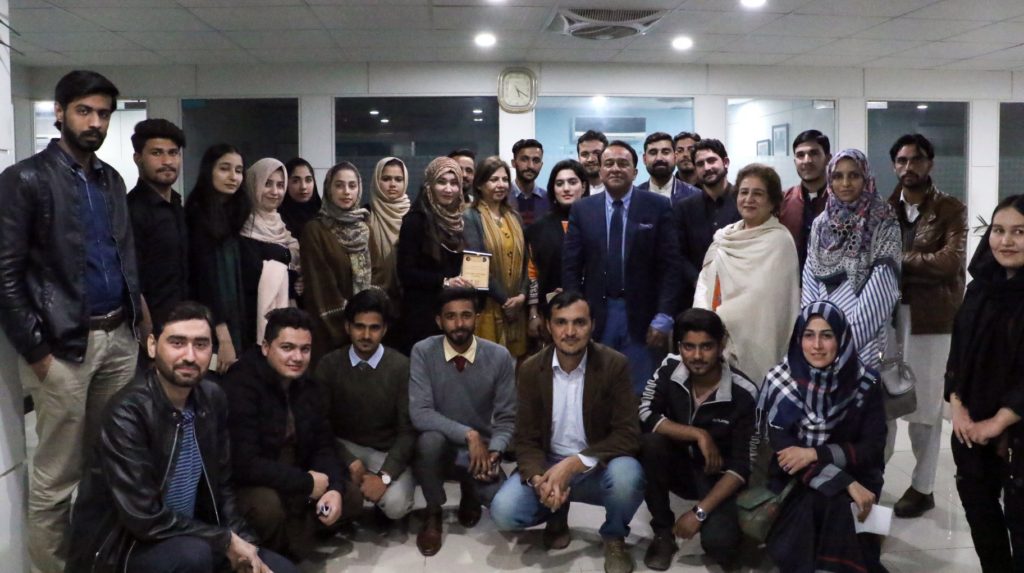
Afghan Studies Center now has an alumni of over 2500 Pakistani and Afghan youth. The platform was established in April 2017 and has been working towards the cause of enhancing people to people contact and improving perceptions and social narratives between the two nations.



